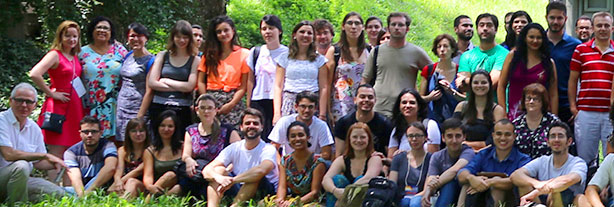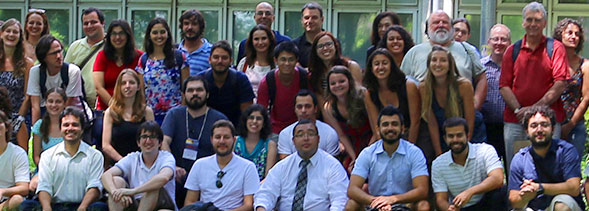The main innovation promoted by the Department in the field of political science education has been the IPSA-USP Summer School in Concepts, Methods and Techniques in Political Science, Public Policy and International Relations. Created in 2010, the IPSA-USP Summer School offers high-level courses in quantitative, qualitative, and mixed methods. Organized by the DCP, under the auspices of the International Political Science Association (IPSA), the Summer School has provided innovative training to students and researchers not only from USP, but from many Brazilian and foreign institutions.
IPSA-USP Summer School official website

Moving into its 11th edition, the USP- based IPSA-USP Summer School is already the largest and longest-lasting IPSA-sponsored summer school. In a total of ten editions, it has welcomed more than 1,300 participants, from almost all continents and more than 30 countries. The faculty comprises experts in certain methods and techniques such as Jason Seawright ( Northwestern University), Bruno Cautrès (Sciences Po, Paris), Matthew Lange (McGill University), Jonathan Phillips (University of São Paulo), Guy D. Whitten (Texas A&M University), Soledad Artiz Prillaman (Stanford University), Andrew Q. Philips (University of Colorado), Lorena G. Barberia (University of São Paulo), Derek Beach (University of Aarhus, Denmark), Clifford Young (IPSOS-Washington), Allyson L. Benton (City University London), Edward Schatz (University of Toronto), Melani Cammett (Harvard University), Glauco Peres da Silva (University of São Paulo) e Laron Williams (University of Missouri).

In particular, PPGCP students have benefited enormously not only from these courses but from closer contact with visiting professors, receiving guidance from them for the development of their research themes, in addition to strengthening ties with a view to internship opportunities and international courses. The impact of the Summer School courses is already evident in dissertations and theses, in the preparation of articles for publication and in the internationalization of the Department. Another important effect is that foreign invited professors start to collaborate permanently with the department's professors.